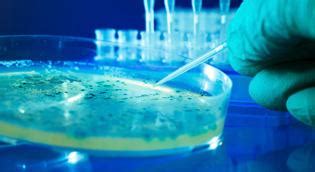Introduction
The Biological Sciences major at the University of Pittsburgh is a dynamic and interdisciplinary program that provides students with a comprehensive understanding of the living world. With a focus on fundamental principles, research, and real-world applications, this major prepares students for a wide range of careers and graduate studies in the life sciences.

Program Overview
The Biological Sciences major at Pitt offers a flexible curriculum that allows students to tailor their studies to their interests and career aspirations. Core courses provide a solid foundation in:
- Biochemistry
- Cell and Molecular Biology
- Genetics
- Evolution
- Ecology
Students can then choose from a variety of concentration areas to delve deeper into specific fields, including:
- Cell and Molecular Biology
- Developmental Biology
- Ecology and Evolution
- Microbiology
- Neuroscience
- Physiology
The program also includes experiential learning opportunities, such as:
- Research projects in faculty labs
- Internships at local institutions
- Fieldwork in various ecosystems
Career Prospects
Graduates of the Biological Sciences major at Pitt are highly sought after by employers in various fields, including:
- Biotechnology
- Healthcare
- Pharmaceuticals
- Research and Development
- Environmental Science
- Education
According to the U.S. Bureau of Labor Statistics, the median annual salary for Biological Scientists was $93,010 as of May 2022.
Research Opportunities
The Biological Sciences major at Pitt is closely affiliated with the University’s School of Medicine and the Pittsburgh Cancer Institute. This affiliation provides students with access to state-of-the-art research facilities and the opportunity to work alongside renowned scientists.
Students are encouraged to participate in research projects as early as their sophomore year. By working in a research lab, students gain hands-on experience, develop critical thinking skills, and make valuable connections with faculty and industry professionals.
Graduate Studies
The Biological Sciences major at Pitt is an excellent foundation for pursuing graduate studies in the life sciences. Graduates of the program have gone on to top universities, including:
- Johns Hopkins University
- Harvard University
- Stanford University
- University of California, Berkeley
- Massachusetts Institute of Technology
Why Pitt?
The Biological Sciences major at Pitt stands out for several reasons:
- Rigorous Curriculum: The program’s challenging curriculum ensures that graduates have a deep understanding of the life sciences and are well-prepared for their careers.
- World-Renowned Faculty: Students learn from highly accomplished professors who are actively involved in groundbreaking research.
- State-of-the-Art Facilities: The program has access to cutting-edge research facilities, including the McGowan Institute for Regenerative Medicine and the Center for Biological Imaging.
- Experiential Learning: Students have numerous opportunities to engage in research, internships, and fieldwork, allowing them to apply their knowledge in practical settings.
- Strong Career Network: The program maintains close ties with employers in various life science fields, providing students with access to career opportunities and networking events.
Tips for Success
To be successful in the Biological Sciences major at Pitt, students should:
- Maintain a strong academic record
- Seek out research opportunities early in their undergraduate career
- Network with faculty and industry professionals
- Explore career options and internship opportunities through the University’s Career Center
Future Trends and Applications
The field of Biological Sciences is constantly evolving, presenting exciting opportunities for research and innovation. Here are a few trends and potential applications to watch for in the coming years:
Biomedicine
- Development of new drugs, vaccines, and therapies based on genetic and molecular discoveries
- Advances in personalized medicine and genomics
- Tissue engineering and regenerative medicine
Climate Change
- Research on the impacts of climate change on ecosystems and human health
- Development of sustainable technologies and solutions
- Conservation and restoration of natural habitats
Biotechnology
- Creation of biofuels and other renewable energy sources
- Development of biodegradable materials and other eco-friendly products
- Advancements in genetic engineering and synthetic biology
Conclusion
The Biological Sciences major at the University of Pittsburgh is an exceptional program that provides students with a comprehensive understanding of the living world and prepares them for a wide range of careers. With its rigorous curriculum, world-renowned faculty, state-of-the-art facilities, and experiential learning opportunities, Pitt’s Biological Sciences major empowers students to make meaningful contributions to the field of life sciences and beyond.
Additional Information
Coursework
The Biological Sciences major at Pitt consists of approximately 120 credit hours, including:
- Core Courses (35-40 credits)
- Concentration Courses (20-30 credits)
- Electives (25-30 credits)
- Research (5 credits)
Table 1: Core Courses
| Course | Credits |
|---|---|
| Biochemistry I | 4 |
| Cell Biology | 4 |
| Molecular Biology | 4 |
| Genetics | 4 |
| Evolution | 4 |
| Ecology | 4 |
Table 2: Concentration Areas
| Concentration | Requirements |
|---|---|
| Cell and Molecular Biology | 20 credits from approved courses in cell biology, molecular biology, biochemistry, and genetics |
| Developmental Biology | 20 credits from approved courses in developmental biology, cell biology, and genetics |
| Ecology and Evolution | 20 credits from approved courses in ecology, evolution, and environmental science |
| Microbiology | 20 credits from approved courses in microbiology, immunology, and virology |
| Neuroscience | 20 credits from approved courses in neuroscience, psychology, and biology |
| Physiology | 20 credits from approved courses in physiology, biochemistry, and biology |
Table 3: Elective Courses
Students can choose elective courses from a wide range of topics, including:
- Animal Behavior
- Biostatistics
- Computer Science for Biology
- Environmental Policy
- Health Sciences
- Marine Biology
- Plant Biology
Table 4: Research Opportunities
The Biological Sciences major at Pitt offers a variety of research opportunities, including:
- Undergraduate Research Assistantships (UREAs)
- Summer Research Scholarships
- Honors Thesis
- Internships
